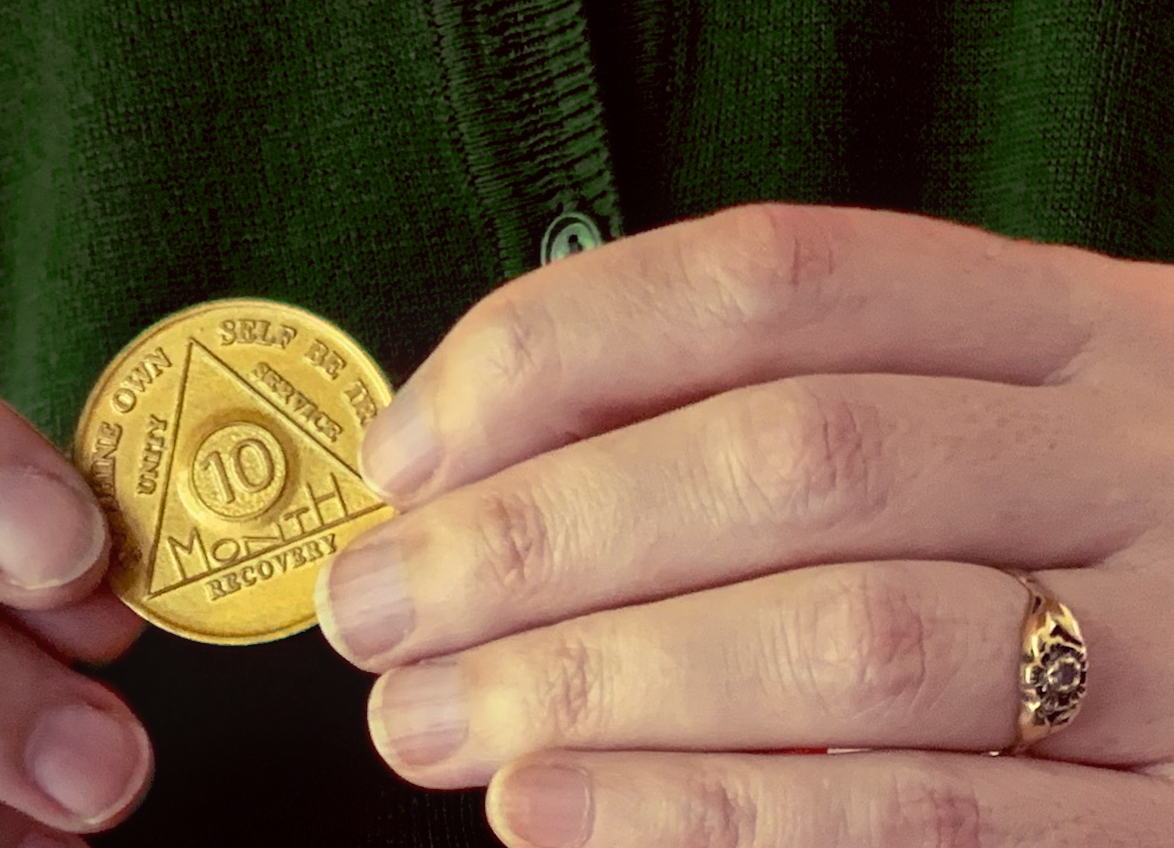Most of us have seen TV episodes where someone stands up at an Alcoholics Anonymous meeting and announces, “My name is John/Joan, and I’m celebrating x years of sobriety.” If you’ve ever wondered, that does happen at real-life AA meetings and their kin—plus, celebrants typically receive a material award such as AA chips or a “sober medallion.”
What Is a Sobriety Milestone?
“Anonymous” groups, Celebrate Recovery, and other 12-Step-based programs recognize anniversaries, meaning a certain amount of time since the last drink or dose or “morning after.” Anniversaries are typically celebrated every month for the first year, and once a year thereafter. Some groups also consider the first 24 hours a milestone; others present incoming members with “desire chips” to signify the first of many alcohol-free days.
While there’s no universally standard system (and different groups in the same organization may be fully independent of each other), most groups have established practices for rewarding anniversary celebrants in tangible fashion. This typically includes presentation of a colorful plastic chip or metallic coin/medallion, engraved with appropriate numbers, logos, and phrases (“To Thine Own Self Be True” is a popular motto) to indicate successful commitment to sobriety.
Where Did AA Chips Begin?
The origins of the chip system are not clear, and there seems to be no authoritative record. Various sources mention an Alcoholics Anonymous leader in Indianapolis introducing the practice in 1942; a medallion that the founder of Cleveland’s first chapter made for himself from a silver dollar; or a nun at St. Thomas Hospital (Akron, OH) who gave Sacred Heart medallions to patients pledged to sobriety after discharge.
What’s known for sure is:
- The practice of giving tangible awards to motivate achievement and perseverance has long been widespread in support groups as well as schools, clubs, and businesses.
- AA and similar organizations have used the chip system for several decades.
- Most sobriety organizations have no universal guidelines. Specific awards rules are established by individual chapters.
The Year Without In-Person Meetings: Did You Miss a Chip?
Recently, the question of “how the chip system works” has encountered a new wrinkle. It’s not been many years since you had to be physically at a meeting to receive your chip; and although remote-meeting options were expanding by 2020, few were prepared for the COVID-19 shutdowns that slammed in-person doors (and the doors to many healthy non-drug activities) shut for months. Liquor stores remained open as essential businesses, providing “have just one” temptations everywhere. Relapses and drug-related fatalities soared, alongside physical illness and emotional stress.
If you’re among those who stuck out the past year without relapse, you deserve special congratulations and every award you earned, plus more. But if you had to celebrate your first, second, or twentieth sobriety anniversary virtually, you may not have gotten your AA chips for those celebrations. If your chapter’s leadership made arrangements for home delivery, or for presenting awards at a post-shutdown meeting, good for them. Otherwise, feel free to ask them (or another chapter, or the organization’s main website) directly for a chip, and to suggest a special “anniversaries of 2020” celebration at an upcoming in-person meeting. You can also buy a token/medal (most are sold by independent manufacturers and available through online stores), or even make your own.
However you get your 2020 anniversary tokens, be sure to share them—and your stories of that year—with your virtual or in-person group. You’ve accomplished something to be proud of.
Beyond AA Chips: Other Ways to Celebrate Your Successes
AA chips aren’t the only ways to signify success. Even during “normal” times, there’s no need to leave every celebration of achievement to your support group leadership: part of staying sober is developing personal initiative. You can hold your own personally designed celebration for any milestone that’s meaningful to you: first summer trip without a drink, third time you successfully avoided your worst relapse trigger, twenty-two months of sobriety because your birthday is the 22nd and you’ve always considered that your lucky number.
Also remember that your goals shouldn’t stop at what you’re not doing: important as “not drinking” is, any achievement system that emphasizes only “don’t” increases focus on the forbidden activity, and ultimately increases your relapse risk. Fill your life with positive alternatives to drug use—activities that appeal to your natural passions—and use these to set well-defined goals with clear progress milestones. When you reach a milestone, celebrate with whatever “awards” you consider significant. There’s nothing more rewarding or more conducive to sobriety than pride in being your true best self.
12 Step Programs and More
Lakeside-Milam’s addiction treatment approach is rooted in 12 Step principles as well as education, physical health care, and Rational Emotive Therapy (using clear thinking to catch and correct the thoughts that drive addiction). We guarantee an individualized treatment plan and long-term support. Contact us today to learn more.






